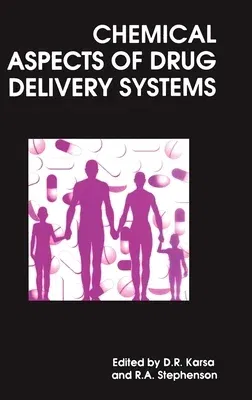Chemical Aspects of Drug Delivery SystemsHardcover, 29 March 1996

Qty
1
Turbo
Ships in 2 - 3 days
In Stock
Free Delivery
Cash on Delivery
15 Days
Free Returns
Secure Checkout

Part of Series
Special Publications
Part of Series
ISSN
Part of Series
Special Publication
Print Length
170 pages
Language
English
Publisher
Royal Society of Chemistry
Date Published
29 Mar 1996
ISBN-10
0854047069
ISBN-13
9780854047062
Description
Product Details
Book Format:
Hardcover
Country of Origin:
GB
Date Published:
29 March 1996
Dimensions:
23.39 x
15.6 x
1.12 cm
ISBN-10:
0854047069
ISBN-13:
9780854047062
Language:
English
Location:
Cambridge
Pages:
170
Publisher:
Weight:
417.3 gm